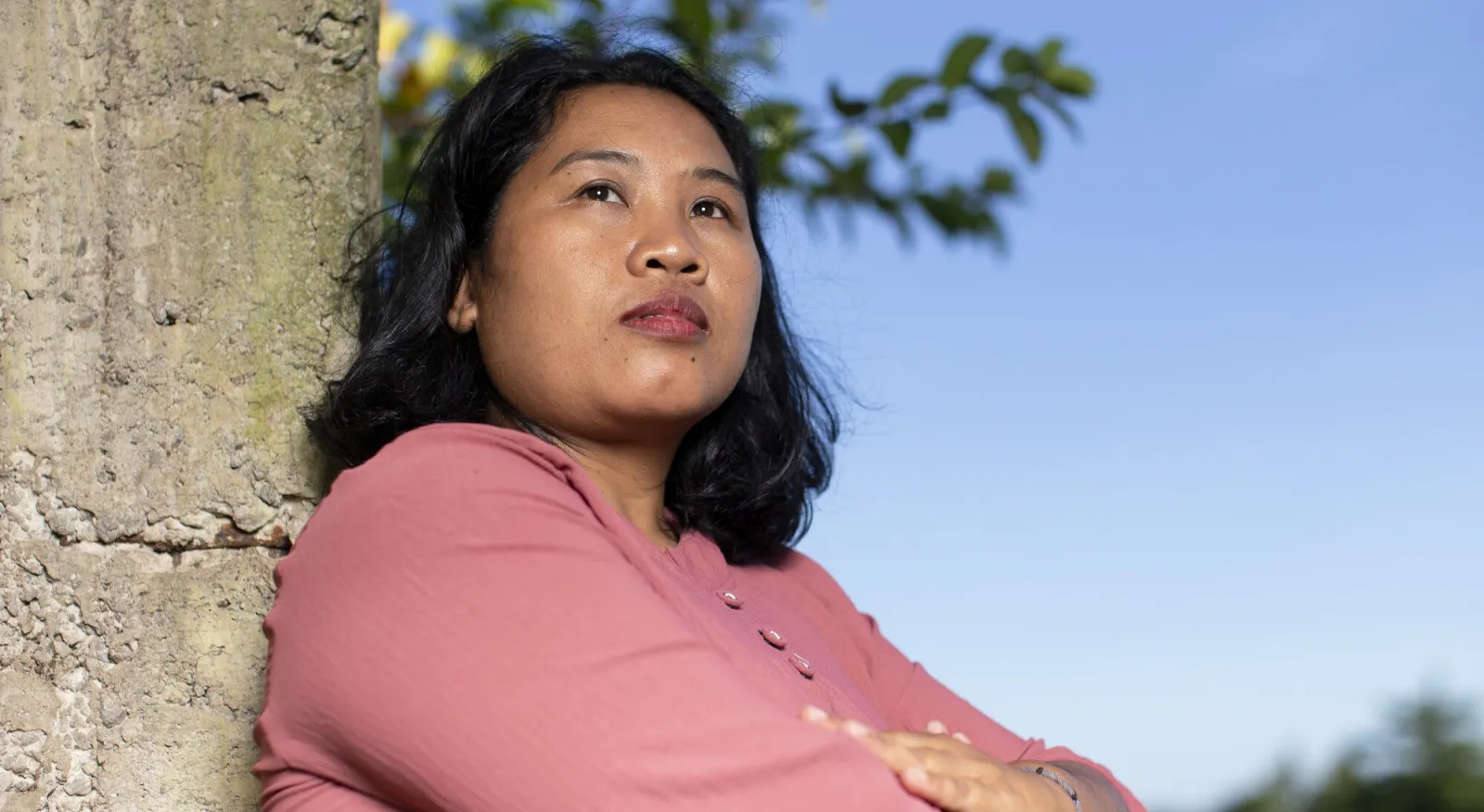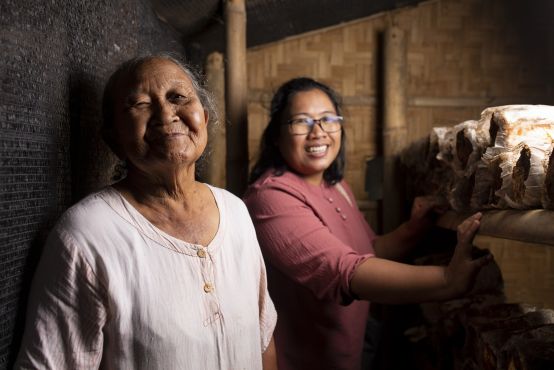Women empowered to face climate change head-on
Armed with knowledge and skills about climate change, organic gardening and composting, a group of women in Indonesia are helping their community manage the impacts of the climate crisis.

In the Bantul district of the Special Region of Yogyakarta in Indonesia, the community is being heavily impacted by the climate crisis. Eighty per cent of the district’s population are farmers, and they are struggling with the effects of unpredictable weather patterns.
‘Previously we knew that October to March is the rainy season and April to September is the dry season, but today it’s not like that’, says Sulastri Miharja, Director of Pemberdayaan Perempuan Memerangi Kemiskinan (PPMK), an organisation in Bantul that works to empower women to fight poverty.
‘Farmers cannot predict what crops they will plant, and when difficult things happen, like long dry seasons or extreme rain, it means their crops fail. I’ve seen these changes for four or five years already, but the last two years have been very bad. I’ve seen many farmers’ crops failing.’
‘For example, farmers are planting peanuts during the dry season, but suddenly the high rainfall comes early which inundates the fields and the peanuts rot.’
Seeing this impact on the community is what drove Sulastri and her team at PPMK, a program partner, to implement a program to educate and upskill women to manage the effects of climate change.
Small grant, big impact
PPMK works with about 200 women in Bantul through microfinancing, allowing the women to run successful small businesses to support themselves and their families.
As part of their mission to empower women, PPMK selected 30 women to take part in a climate change project, made possible with a small grant from the Australian Volunteers Program. Through a series of workshops and in-person home visits the women learnt about organic farming, the importance of planting trees, soil health, waste management and the impacts of climate change.
Sulastri says before the project, the women were not aware of how climate change was impacting the environment and farming, or the consequences of burning waste and disposing of garbage in the river.
Saving money on vegetables
Sulastri says one of the most successful parts of the project was supporting the women to set up organic vegetable gardens and organic composting in their own homes.
The women used existing plastic products in their houses to create the gardens and learnt about separating organic from non-organic waste to make compost.
‘Having organic vegetable gardens in their own home, they can reduce their expenses to buy vegetables – this is the best part,’ explains Sulastri. ‘Food is very expensive right now.’
‘All the methods I learnt I practice at home.’
Ms Surani, a project participant who grew an organic vegetable garden, says she valued making new friends and gaining new experiences, along with the practical elements.
‘Most importantly, I gained more knowledge about the climate and farming. All the new methods I learned of how to plant vegetables better I practice at home,’ she says.
‘The knowledge about planting vegetables and how to make my own fertilizer out of compost was interesting for me.
‘Agriculture is important to me, I have a small rice field, so I can directly use the information I learned in the workshop. The rice field helps me feed my family.’
Forming new connections
Another big win of the project were the connections the women formed. PPMK set up a WhatsApp chat for the group to share information about climate change, gardening, and waste. For participants who don’t have smartphones, other members of the group made sure to share the knowledge with them personally.
The WhatsApp group has continued to this day, with the women keeping up to date on each other’s progress on their gardens and composting, as well as their small businesses.
‘The women are now advertising the different products they make and sell with each other through the WhatsApp group,’ says Sulastri.
PPMK also holds meetings every six months at the office for the project participants to share ideas, knowledge, and the women’s progress.
Looking long-term
It’s not just the women who took part in the project who have benefited from their new knowledge and experiences.
PPMK gave the women resources to share what they learnt with their partners, families, and neighbours. PPMK estimates about 120 people in total have been reached through the project.
A key part of the project’s success was its sustainability. The women have gained skills that will make an impact on them, their families, and their community for a long time to come.
'It’s not only for a short time; this will have a long-time impact,’ says Sulastri.
Meet Sulastri and find out more about PPMK
Discover how, with support from the Australian Volunteers Program, PPMK has supported women experiencing poverty to set up sustainable small businesses.
